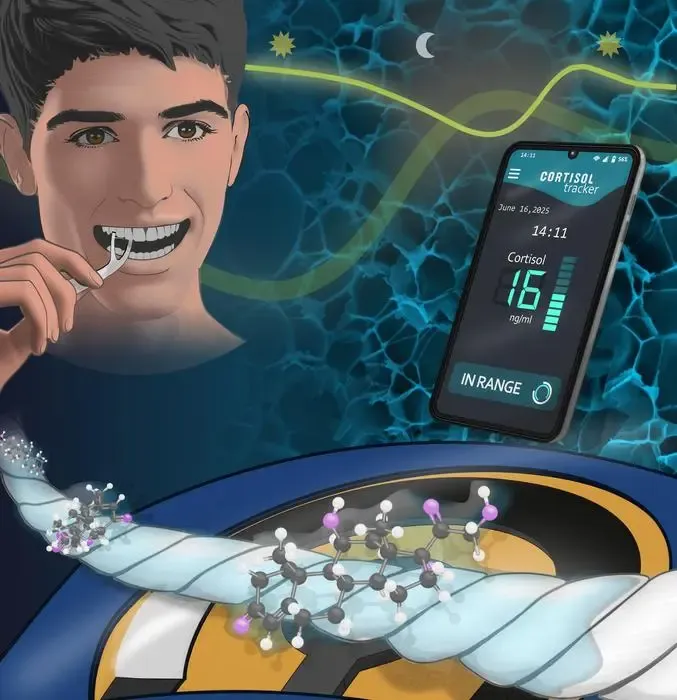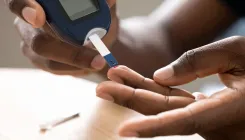Could Researchers Have Developed Dental Floss That Measures Stress?

Synopsis
Key Takeaways
- Innovative dental floss can measure cortisol levels.
- Helps monitor chronic stress, reducing health risks.
- Design integrates with daily hygiene routines.
- Potential for detecting multiple biomarkers.
- Accuracy comparable to advanced sensors.
New Delhi, May 25 (NationPress) Researchers in the United States have created an innovative device utilizing uniquely engineered dental floss that can effectively and precisely measure cortisol, a hormone associated with stress, in real time.
Chronic stress can result in elevated blood pressure, cardiovascular disease, diminished immune function, as well as increased risks of depression and anxiety.
“This initiative began as a partnership among various departments at Tufts University, focusing on how stress and different cognitive states influence problem-solving abilities and learning,” explained Sameer Sonkusale, a professor of electrical and computer engineering, in a study featured in the ACS Applied Materials & Interfaces journal.
“We aimed to ensure that the measurement process itself wouldn’t contribute to stress, prompting us to explore if we could design a sensing device that fits seamlessly into daily routines. Since cortisol is a stress marker found in saliva, using dental floss was a logical choice for obtaining daily samples,” he added.
The design of the saliva-sensing dental floss resembles a typical floss pick, featuring a string stretched across two prongs extending from a flat plastic handle, roughly the size of an index finger.
Saliva is absorbed through capillary action in a very narrow channel within the floss.
The fluid is then directed into the pick handle and an attached tab, where it disperses across electrodes that identify the cortisol.
Detecting cortisol on the electrodes is made possible by a remarkable technology known as electropolymerized molecularly imprinted polymers (eMIPs), developed nearly 30 years ago.
These eMIP molds are adaptable, allowing for the creation of dental floss sensors that can identify other substances in saliva, such as estrogen for fertility assessment, glucose for diabetes management, or markers for cancer detection.
Furthermore, researchers suggest the potential for simultaneous detection of multiple biomarkers in saliva, enhancing the accuracy of monitoring stress, cardiovascular health, cancer, and other conditions.
The precision of the cortisol sensors is on par with the leading sensors currently available or in development.
Introducing this device into households, accessible to individuals without specialized training, could integrate stress monitoring into various facets of health care.
At present, Sonkusale and his team are establishing a startup aimed at bringing this product to market.









